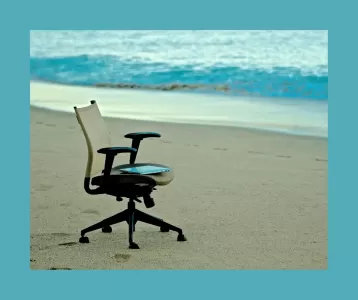Is it a surprise business hasn’t changed?
Monday morning, I was called into the conference room. Present were the controller/HR Manager and my Manager. I was handed a folder and the exit package was explained. I am not sure I heard much after being told I was being laid off. What I heard is I was No Longer Needed. No option to keep my job.
This was the first experience when I felt things were changing. I thought it was the practice of business was changing. I started working in the late seventies with the understanding of there being a compact with ownership. It was understood if you worked hard and did your job as you were directed, your employment would be secure for your career. This was career planning and retirement planning 101. My lens was too narrow. Business wasn’t changing, but the terms of employment were. Since my layoff notice in 1989 I have been through five different workforce corrections. These have reinforced my career and future are my responsibility to craft and manage.
Would you agree or do you disagree about work in America? Generally, is the objective of a business to provide a service and get paid for that offering? A company could provide a widget or a service, the objective is to receive compensation, most frequently in the form of money. The longevity of a business has to do with its profitability, receive more money than the cost to deliver the service.
At this simplified level the same is true for an employee. The agreement is to give your time and effort to serve a purpose for the business. Most times this relationship is between the employee and their manager. In both cases the concept is purer than the reality.
I have been three experiences when my position in a company hinged on the perceived value I provided. The first time, described at the beginning, was because I was considered more expensive than my subordinates. The second time was because of a consolidation of two companies and my role was to be filled by me or by someone from the other company. The third time, like the first example, business was waning and the services I provided could not be justified at my salary.
What did I learn from these experiences? Follow the money. I was blindsided in my first layoff because I naively embraced the premise of “if I work hard, and do what is asked of me, I will have employment for my career.” I did not pay attention to the business activity of this company and, instead, focused solely on doing my job well. This resulted in my focusing on what my job had been and not on what it needed to be. A portion of my job description could be provided by others at a lower cost and the other services were no longer needed. The outcome might have been different had I understood I am being paid to help the business not just do my job well. The company and my manager are not there to take care of me.
I learned from that experience and when similar circumstances arose later, I understood what was important and worked to help the management teams craft solutions that served the business and coincidently myself as well. I participated in crafting my future, futures I was excited to pursue. One was creating a role in the management committee, a promotion. The other was in helping reorganize the department to be more efficient and giving me the exit, I was ready to take.
The first of these three was devastating to me and my family emotionally. I felt betrayed for I had naively relied on my manager and the company to have my best interests in mind. I took ownership of my career and expanded my attention to go beyond what my job responsibilities entailed. I added on paying attention to what the business needed and how I could be a part of addressing some of those needs. As a result of these experiences, I learned the value of paying attention to the objectives of the business and the challenges my manager faced. Look for opportunities to participate in the meeting of the objective and addressing what you can of the challenges. These will keep you in demand at your company and in the marketplace.









